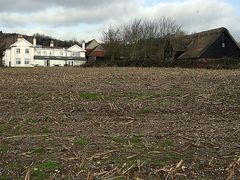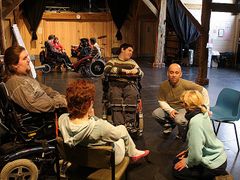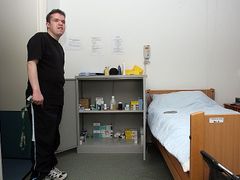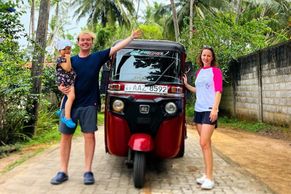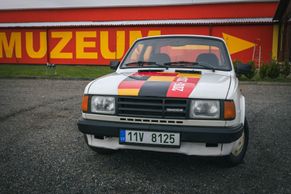Godstone - Not that long ago, BBC shocked the British citizens by showing them pictures of Czech children with disability closed in big social care homes in caged beds.
How comes that a modern country, an EU member, uses such barbaric methods, many asked themselves.
Therefore, Aktuálně.cz reporters set out to the UK to see how the local institutes work and how people with disabilities live there.
No social care home in sight
It's not easy to find a social care home for disabled people on the British Isles.
After the reform in the 80's, there is hardly any left. The use of caged beds or any other restrictions is strictly forbidden.
Children with disability live in families. As for adults, there are small care homes where only few people live together.
Others live with the assistance needed in flats, scattered in normal build-up areas.
However, on the edge of Godstone municipality in London suburbs, there is a facility resembling Czech social care homes in its remoteness and the concentration of 27 young people.
The centre's clients have mostly combined disability, both mental and physical. Most of them move in a wheelchair only, some are mute, some blind.
Welcome in Orpheus
However, instead of separation, the Orpheus Centre is trying to assist all its clients (regardless of the extent of their disability) in getting independent, learning all the things needed and reaching out on their own.
On the average, the clients stay in the "institute" for three years. This summer, another four clients leave to live in nearby cities.
The extensive farm surrounded by meadows and fields was donated to the organisation ten years ago by local artist and donor Richard Stilgoe.
After a radical reconstruction, the farm gradually turned to a centre where young people with various disabilities learn the skills needed for living as independently as possible.
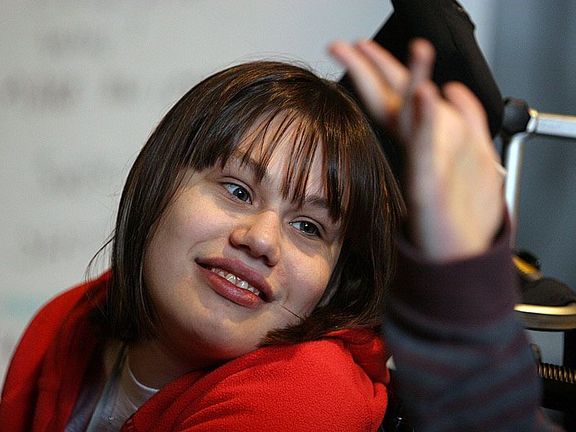
The organisation management prefers not to talk about the costs of the reconstruction. Nevertheless, at the beginning there was just a derelict farm without any furnishing.
Today, only its outer design remains. The main building now contains a common dining room, library and separated single rooms.
Barrier-free access to all the rooms is a matter of course, as are automatically opening doors and rooms with adjustable beds and kitchen units for cooking lessons.
The barn was rebuilt as a theatre, former stables as twelve en suite-flats with independent entrances.
Toward real life
All the students can use a recording studio, learn video shooting and cutting, animation, working with a PC, playing musical instruments, singing, writing for a magazine or acting in a play.
All of this should help the students lift their self-esteem and be brave enough to live independently.
All this regardless of the fact whether the student sees, speaks or moves on his own. Everybody can learn to do the things others do. If needed, an assistant is available as well as specifically adjusted conditions.
Fifty persons, including musicians and actors teaching art, take care of the twenty-seven clients. At night, only two employees are present.
"We are proud of the way it looks, we do not take this as a social care home," centre manager Alisan Chambers says.
"This is more like a college. We call those living here students, not clients. Our goal is to motivate them and help them live independently."
Funded by state
Those with lighter disability could not be sent to this centre as the state wouldn't provide them with enough money to cover the fees.
The Centre is financed by fees the clients receive from the state.
The state allocates the finances according to the number of assistance individual clients need. The money goes directly to the centre or the service the client has chosen.
The Orpheus Centre management has to get 15 % of the budget from other resources. It can thus afford modern equipment and special devices.
Drama for all
Several young people are sitting in the middle of a barn. There is complete silence, all of them are focused.
The drama lesson reaches its peak as the students stage various forms of bullying.
One of the boys is surrounded with two boys who simulate hitting him.
The group does not move for a couple of minutes. Meanwhile, the teacher slowly moves among them and in turns touches each client's shoulder.
"Happiness," says the boy with the outstretched fist. "Yipe" reacts the bullied actor.
Then they play the scene once again. Other students describe what they see. The teacher listens to those with speaking problems until he understands what they mean.
"This scene tells a lot about bullying," the teacher summarises. "We are learning that some like torturing others."
Then it is others' turn. "This is a topic they themselves chose, " the teacher says. "It troubles them a lot and it is up-to-date."
After the lesson there is time for a break. The students have tea or coffee. Then they continue to have another lesson.
Learning to live
The teaching frame of the centre is strict. In phase one which takes a year or two, the students live in the main building in separate rooms but dine together in the dining room.
At this stage, the students can learn acting or shooting video like others.
"They also get a lot of support. We teach them basic skills, how to handle money or the bank account," Alisen says describing the strategy.
As soon as they master the basic practical skills, they move to the other farm, into one of the twelve separate flats with kitchens.
Another two flats are outside the facility.
One couple even got engaged here and plans a wedding and living together outside the centre.
Out of the bubble
However, the centre management knows its limits very well.
"We realize we are like a small bubble isolated from the society," Alisen says. "But we got this building as a gift, so we are trying to do our best with what we have."
Therefore, the staff members are trying to motivate their clients as much as possible to get among healthy people. Thus they do not use the farm swimming pool but prefer going to the city pool.
Half of the students have learned to use the bus on their own. Others need staff's or friends' help to do so.
"It's difficult to go to the village on one's own," Russel (25) says. "However, I get there at least twice a week. This evening we are having dinner in the pub with friends."
This year, Russel moved from the main building to an individual flat. "It's better here, I feel more independent," he says in the middle of a big room with a dining recess. "The only thing I need some help with are drugs which I take six times a day."
Russel who besides its disability suffers from diabetes has a simple dream: "I would like to live in the city in a flat with my friends," he says and leaves for a lesson in practical skills. "Today we learn to write a CV and search for a job."
This year this young man may join his four ex-colleagues , leave the "institute" and live a life of his own.

